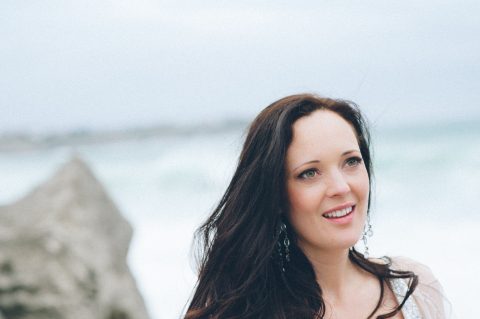What kind of story would you just love to find in SmokeLong’s queue this week?
In Flash Fiction, I love honesty, humour, and risk. Black Comedy. Heart. People who are willing to fail interestingly. Play.
I love strange, but I don’t like weird for weird’s sake – some surreal riff about mutating into a pilchard, without any heart. If you want to mutate into a pilchard give it some welly, some purpose – for the love of all that is aquatic!
I don’t enjoy self-indulgent dream sequences, shuffling around in the glittery unitard of prose poetry. When people prose-poem me, I get confused, and bored, and then I’ll start talking about pilchards until I cry, and you cry, and then we’ll all explode into pilchards, and you don’t want that.
I want words I feel in my gut. Glandular stories.
The story is the thing, not the structure or the concept – everything serves the Dark Lord: Story.
I am writing this at the Flash Fiction Festival 2019, in Bristol, and I’ve just got out of a workshop with the brilliant, inspiring Christopher Allen. I loved what he had to say about the importance of specificity and emotional resonance in a story, and how the best flash finds that, in the least amount of honest, authentic details. Whether you are writing a moment of being, or you are showing the past, present and future of a moment – at its core, the story is the thing.
Are there certain themes you find yourself returning to in your own work?
I often write about Nature as a character and what utter bastards humans are.
Location, identity, alienation, and destruction of nature, of others and ourselves. Which sounds miserable, but I do believe in trees. I do believe there is hope in nature.
I grew up without trees. Most city kids do. I grew up with towers of concrete. I found childhood exhausting, and I try to reassure all the kids I meet that it gets better, when you are grown up you can be batshit, happy, and in control. You can go live in a forest. I grew up under a spaghetti junction, and I moved dozens and dozens of times to new houses, cities, odd concrete places.
But it is not a bad thing to grow up without nature. Sure, country dwellers had their blue tits and barn owls, but did they have a sky full of faces, towerblocks of them, and underpasses to sprint through?
I probably never look at a tree the way you look at a tree, if you grew up looking at trees.
I’ll never be a tree know-it-all or a birdwatcher. I’ll always be looking at all these big woody green things and feeling confused by all the tiny brains and eye-balls hurtling out of it, eating worms, putting eggs in trees.
Where do you write? Are you the type of writer who needs the absolute silence of her home office or do you prefer to venture out to coffee shops where the sound of the espresso machine inspires you?
As mentioned, I am writing this during the Flash Fiction Festival 2019. This morning I woke at 5.30am to the explosive flushing sounds of a British 1950’s plumbing system, next to my bedroom in the Student Halls of Residence, as 60 other writers flumped out of bed and bumbled around flushing toilets manically, as is the way of writers (it seems). So, I wrote for two hours, and that’s my writing for the day. Normally, I write wherever and wherever; in bed very early in the morning is my favourite but I’m ok anywhere. I love silence, and carry earplugs so I can block out music and chatter. I don’t have a desk, I don’t even have a specific house or city at the moment, I just need my laptop or my phone. I write a lot on my phone at 4am, when my brain is throwing out bat orchids and squirrels.
I had a dream a few weeks ago in which I wrote a novel first line so perfect – intelligent, witty, deep – I woke up laughing. I forced my self to write it down, and went back to sleep. It said “Barry drinks latte the proper way, with his toes.”
Even something as catastrophically disappointing as that can trigger a story – and it did, and I am writing it.
I think this is a very protracted way of saying I like napping, and dreaming, and that is my version of writing. I think any way to detatch yourself from the writery nature of writing is helpful, a special pen or desk or office would be a bad idea for me. I’d probably start writing like a grown up. I’d have to speak in iambic pentameter, and smoke a pipe, and flush toilets for hours at 5am like a proper Writer.


 The SmokeLong Grand Micro Contest (The Mikey) is now an annual competition celebrating and compensating the best micro fiction and nonfiction online.
The SmokeLong Grand Micro Contest (The Mikey) is now an annual competition celebrating and compensating the best micro fiction and nonfiction online.